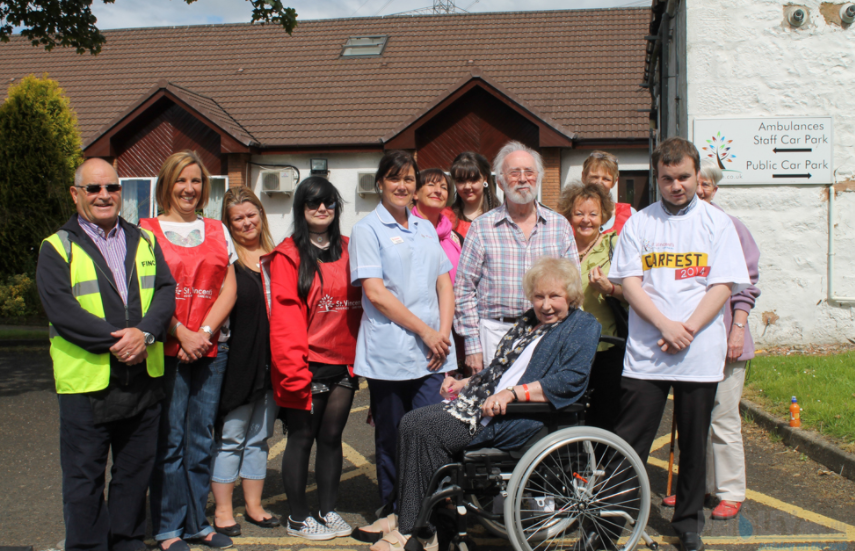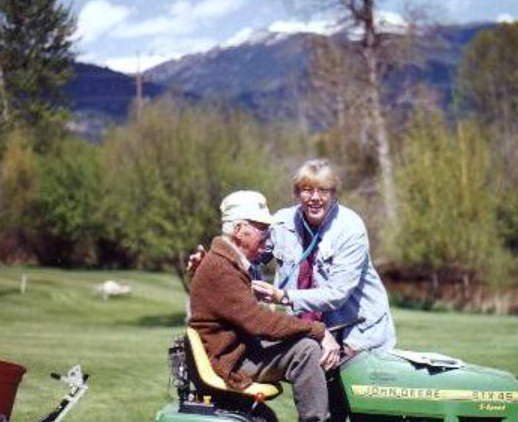
Hospice care is a special kind of service that involves taking care of patients who are terminally ill. It ensures that a patient’s quality of life is not diminished by incurable disease.
Palliative care is often confused for “hospice care.” They are similar in nature, but palliative care can also be received by those who are not at an end-of-life stage.
Hospice care is a more specific branch that falls under palliative care. It is for those who are projected to have less than six months left to live.
Most people believe that entering into this kind of service means losing all hope for recovery and giving up. That is not what hospice is.
Entering into hospice care is celebrating the time a person has left rather than mourning the inevitable. It is a show of support that life doesn’t have to end just because a disease can no longer be cured.
It follows a philosophy that accepts death as an inevitability but does not hasten it. Instead, both hospice care and palliative care focus on treating the patient by relieving the symptoms to keep them comfortable.
The medical team understands that spiritual and emotional relief are just as important as relief from physical pain. Hospice care is ready to help a patient fulfill all of their needs and feel at ease.
Professionals working in the field understand that patients are not the only ones affected by a life-limiting disease. Family members are also given comfort and reassurance that their loved ones will be in the best hands.
The financial costs of hospice may be an added cost of stress. But most private insurance companies and Medicare will pay for the entire service in full.
This article will discuss the services hospice care can offer. As well as what both patients and family members can expect once they decide to use this service.
What services are provided by hospice care?
Each hospice care company offers a variety of services. Some may differ from others, so it is recommended that you choose the best kind of service that suits your needs.
This list contains the most common services that hospice companies can provide.
24/7 Round-the-Clock Care
Entering into hospice care is said to be comparable to having a “doctor’s office in wheels” because service is available 24/7. Patients can call the service if they need assistance with anything.
This service can depend on what the patient needs. Often, it used for activities that require physical labor such as going up and down the stairs, taking a bath, cooking for meals, etc.
Hospice care companies can offer a “comfort kit” that contains medicines to treat symptoms that come with end-of-life care. Fever, breathing problems, dizziness, and pain are some of the symptoms the kit can alleviate.
Access to Healthcare Experts
To ensure that patients receive the best quality of care there is, hospice services hire medical experts. They are tasked with keeping the patient comfortable with the right kind of medication to alleviate pain.

Accomplishing your bucket list
Everyone has a list of things they wish to do before they die. When patients are in hospice, the glaring truth of what they’re facing can lead to depression.
Hospice services aim to combat that by providing unique programs to help patients forget the reality they face and just have fun.
Spiritual Support
Cheesy as it may sound, most people at end-of-life care start to question the way they’ve lived their lives. This is when existential questions can come churning out.
Leaving them unanswered could affect the patient’s health negatively. That’s where spiritual counselors come in.
Most services offer a spiritual counselor (or an appropriate alternative for religious patients) who ease the patient’s spiritual burden.
It fills an emotional hole most patients don’t realize they had and allows them to embrace the afterlife without regrets. It also relieves stress that comes from major life changes associated with hospice care.
Medical Equipment
Dealing with a terminal illness could mean the need for equipment that assist with a patient’s quality of life. This may include a hospital bed, oxygen equipment, blood pressure monitors, lifts, etc.
Physical Therapy
In order to avoid developing harmful health conditions that could affect quality of life, physical therapy is often recommended for most patients. It keeps them as healthy as they can be despite the conditions.
Volunteers for Company
Being at the end stage of life comes with limitations such as lesser time outdoors. Or even having less people over to visit.
Hospice services can include sending in volunteers to entertain the patient within the comfort of their home. Humans are social creatures, and studies show that patients do better emotionally if they have someone to talk to.
Respite Care
It is understandable that a family caregiver would want to “take a break” from taking care of a terminally ill loved one. Hospice companies can take over for a few days to give them time to rest.
This benefits both the caregiver and the patient because the caregiver comes back fresh and well-rested.
These are only examples of services hospice care can provide a patient and their family. It eases the physical and emotional burden significantly and puts everyone at ease.
What kind of care do patients receive?
Patients receive a tremendous amount of support from the staff. They are always the number one priority, and their decisions are to be respected.
The needs of every patient differ based on their preferences and the type of terminal illness that they are facing. It may be hard dealing with the reality of needing hospice care, but the primary goal is providing comfort.
Each patient has a team of workers assigned to them. They work together to address the patient’s needs, be it physical, social, emotional, or spiritual needs.
This team is composed of a doctor, nurse, social worker, spiritual counselor, home health aide, and trained volunteers. Patients shouldn’t worry about anything and should focus on spending as much time as possible with the people they love.
Unwanted hospital visits are lessened because regular checkups can be done at home. Pain is also alleviated with the help of medications.
Hospice care aims to make the whole experience as painless as possible. That is why pain-relieving medications are the biggest tool they can use.
Some people may fear that the medications they receive for pain relief may become lethal, but they shouldn’t worry. The most common medicine used is morphine, which is an opioid.
An opioid’s dose depends on how much a person has been exposed to it. The longer the body has been exposed to opioids, the more it can tolerate.
This ensures that the pain is treated without harming the patient.
Although it may be tough when you are told you have a limited time to live, know that each day is a blessing. Live it to the fullest and make the right choice by getting hospice care.
Physical and mental health improve if patients receive hospice care. One of the factors that contributes to this is that they are in a familiar environment.
This, together with receiving care in the comfort of their own home, increases quality of life.
What can hospice care services do for the family?
When a patient receives hospice care, they are not the only ones who benefit from it. Families, by extension, are part of the whole process.
The primary focus of hospice care is always the patient. But their family and caregiver can be considered the second patients.
Hospice care is family centered. It cares about the well-being of the people who interact with the patient on a daily basis.
The family can choose to receive weekly updates about the patient’s condition. And they can also receive informal updates after every scheduled visit.
A huge weight is lifted from their shoulders once a family is assured their loved on is in great hands. Without the added responsibility of taking care of someone who is terminally ill 24/7, they can spend more time focusing on creating lasting memories with the person they love.
Hospice care does not end with relieving patient-care responsibilities. It can also involve household chores such as laundry, shopping, and cooking.
They receive assistance through emotional, spiritual, and long-term grief support. In essence, hospice care prepares the family for the inevitability of their loved one’s passing.
It then provides a safe space to talk about their feelings once their loved one passes away.

What can I do for someone in hospice care?
It can be hard knowing someone you care about is receiving end-of-life care. It could be a coworker, friend, or family member.
Most people don’t know how to act when someone they know is in hospice. Awkwardness can grow between you and the patient the longer you put off a visit.
One thing you have to remember is that this is not about you. It’s about your friend. Listen to what they have to say.
Sometimes, you can even go a whole visit without saying anything because your friend just needed someone to talk to. Be there to listen.
Silence is not all bad. The simple thought of having someone who cares in the room can improve a patient’s mood.
Besides, they may not feel like talking because of the toll their body has taken. Let them know that you are there for them for as long as you can.
If you need to fill the silence with something, then tell them about your day. Reminisce about your shared adventures in the past.
Update them on the latest gossip happening in the office or in your social circles. Laugh out loud and be your best self around them.
Make them feel human again. Needing care 24/7 can dehumanize someone and make them feel as if they’ve lost their dignity.
Combat that by keeping them company that isn’t bound by the confines of their home. Greet them the way you normally would—with a hug, handshake, or an air kiss.
Take a seat close to them and get comfortable. Show them that your attention is undivided and that you genuinely care about spending time with them.
You can even offer to help them with something around the house. Fetch them a glass of water or whip them up a snack.
And once it’s time for you to leave, just tell them the truth. Don’t say you’re going to visit again if you have no plan to follow through.
Even if you don’t have the time to visit them in person, keep them company through other means. Thanks to technology, you can keep in touch through voice calls, video calls, email, text, etc.
Talking to them for a few minutes each day already means a lot. Help them feel like themselves again.
What happens after a patient passes?
So many people hope for a miracle; that they are cured from their terminal disease, but these moments are rare. The body can only take so much before it eventually shuts down.
Death is a natural part of life and that doesn’t mean you can just accept it and move on. It is okay to grieve for as long as you want once your loved one passes and understand that everyone deals with it differently.
Don’t be afraid to reach out and talk to other people about the life that was lost. Talk about fond memories and shared experiences.
Keep in touch with the bereaved both for your mental health and theirs. Offer your assistance if there’s anything they need done.
Grief is unique to everyone. Others may get over it sooner, and that’s all right. Don’t force yourself to feel better about someone’s passing.
It may take weeks for you to feel ready, or it could take years. Deal with your emotions in a healthy way.
Do not be afraid to seek professional help if it all becomes too much. Talk about your feelings with a licensed professional so that they can help you navigate your way through your grief.
